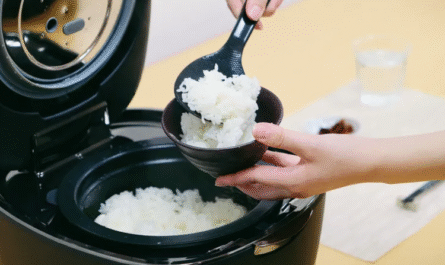In recent years, the benefits of black rice for cancer patients have gained significant attention. Black rice, often referred to as ‘forbidden rice’, is not only visually striking but also packed with nutrients that are particularly beneficial for individuals battling cancer. This article will explore the unique properties of black rice and how it can be a crucial part of a cancer patient’s diet.

The Nutritional Profile of Black Rice
Black rice is rich in antioxidants, fiber, and essential vitamins. These components play a vital role in supporting overall health and aiding in the recovery process for cancer patients. The outer bran of the rice contains a high concentration of anthocyanins, the same powerful antioxidant found in blueberries and blackberries.
Antioxidants and Their Role
Antioxidants are crucial in protecting the body’s cells from damage caused by free radicals. For cancer patients, consuming foods high in antioxidants can help reduce oxidative stress and inflammation, which are linked to cancer progression.
Black Rice and Cancer Prevention
Including black rice in one’s diet may contribute to cancer prevention. Its high fiber content promotes a healthy digestive system, which is essential for reducing the risk of certain types of cancer, particularly colorectal cancer. Studies have also suggested that the anthocyanins in black rice can inhibit the growth of cancer cells.
Fiber and Digestive Health
Fiber is known for its ability to improve digestion and prevent constipation, a common issue for cancer patients. By maintaining a healthy digestive tract, fiber helps in the elimination of toxins from the body, which is crucial for cancer prevention and management.
Integrating Black Rice into the Diet
Black rice can be a versatile addition to a cancer patient’s diet. Its nutty flavor and chewy texture make it suitable for a variety of dishes. From salads to sushi, black rice can be incorporated into meals in numerous delicious ways.
Cooking Tips
Cooking black rice is simple. It requires a longer cooking time compared to white rice, but the process is straightforward. Rinse the rice under cold water and cook it using a rice cooker or a pot with a little extra water. For more detailed instructions, you can visit this guide on preparing black rice.
Black Rice in Traditional Medicine
Traditionally, black rice has been used in various cultures for its health benefits. It has been a staple in Asian diets for centuries and is often associated with longevity and vitality. Modern science is now catching up, providing evidence for its traditional uses.
Historical Significance
In ancient China, black rice was reserved for royalty due to its scarcity and superior health benefits. Today, it is more accessible but still holds a place of high regard in traditional medicine practices.
Potential Concerns and Considerations
While black rice offers numerous health benefits, it is important to consume it as part of a balanced diet. Individuals should be mindful of potential allergies and consult with healthcare providers, especially when undergoing cancer treatment.
Allergy Concerns
Though rare, some individuals may experience allergies to black rice. Symptoms can include itching, swelling, or digestive issues. For more information on this, check black rice allergy.
Conclusion
Incorporating black rice for cancer patients into their diet can provide numerous health benefits. Its rich nutritional profile supports overall health and may aid in cancer prevention and treatment. As always, it is essential to consult with healthcare professionals to tailor dietary choices to individual needs.

FAQs
Is black rice suitable for all cancer patients?
While generally beneficial, it is important for patients to consult with a healthcare provider to ensure it suits their specific dietary needs.
Can black rice be eaten raw?
No, black rice should be cooked to ensure it is safe to eat and to make it easier to digest. Learn more about this here.
What are the primary health benefits of black rice?
Black rice is high in antioxidants, fiber, and essential nutrients, which can support cancer prevention and overall health. For more details, visit Healthline.
This article contains affiliate links. We may earn a commission at no extra cost to you.




